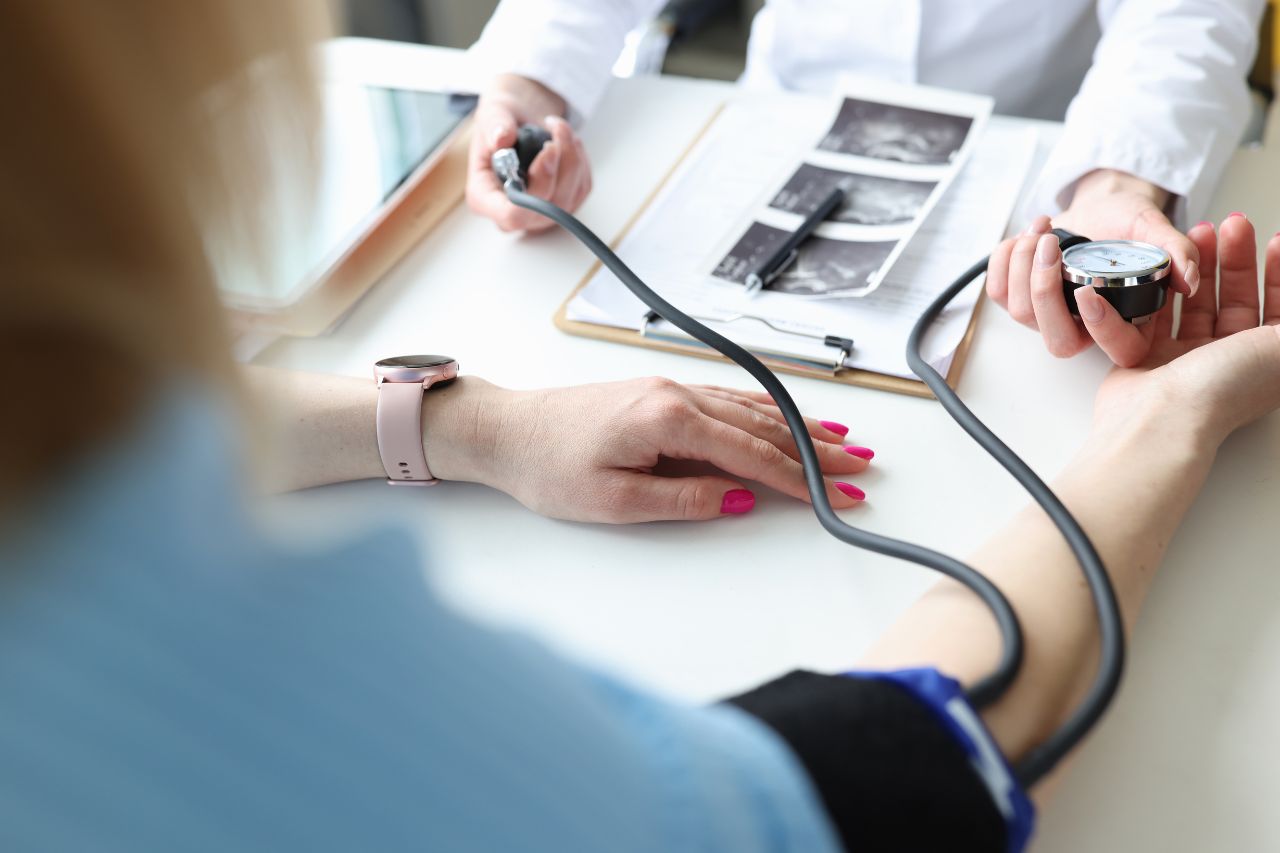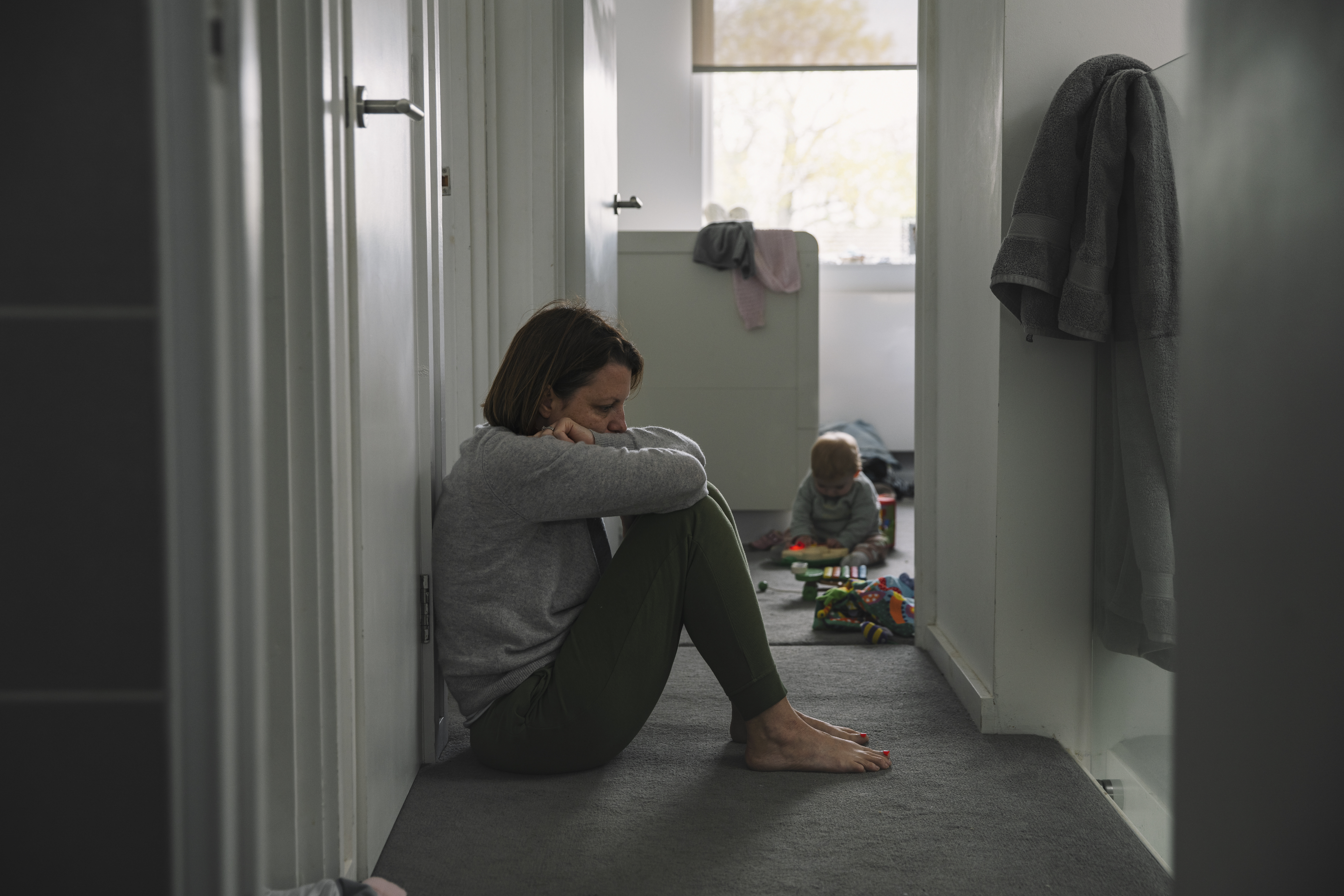What Is Postpartum Preeclampsia?

Clinically reviewed by Cindy Richardson, CMPE
Postpartum preeclampsia is a rare but serious condition that causes excess protein in your urine and high blood pressure soon after your baby is born. It’s similar to preeclampsia, which occurs during pregnancy, can have mild or severe symptoms, and generally resolves after you give birth.
Postpartum preeclampsia typically develops within 48 hours of giving birth. However, it can occur as long as six weeks after childbirth, in which case it’s called late postpartum preeclampsia. Either way, it must be addressed immediately, as it can lead to seizures, stroke, and other potentially life-threatening issues if you don’t get treatment.
Postpartum Preeclampsia Symptoms
It can be challenging to detect the symptoms of postpartum preeclampsia since you’ve just given birth and are dealing with all the changes in your body from that event — and caring for a baby simultaneously!
However, you should contact your doctor if you experience any of the following:
- Vision changes, such as light sensitivity, blurred vision, and temporary vision loss
- Severe headaches
- Upper belly pain, typically under the ribs on the right side
- Shortness of breath
- Swelling in your hands and face
- Nausea
- Vomiting
- Decreased urination
- Hypertension (high blood pressure) of 140/90 mm Hg or greater
- Proteinuria (excess protein in your urine)
Your care team most likely detects the last two symptoms in this list in a post-childbirth visit.
Postpartum Preeclampsia Risk Factors
Anyone can develop postpartum preeclampsia. But your likelihood of experiencing it is higher if you have any of the following risk factors:
- High blood pressure during pregnancy
- Family or personal history of preeclampsia or postpartum preeclampsia
- Obesity
- Being younger than 20 or older than 40
- Expecting multiple babies
- Autoimmune conditions
- Diabetes (type 1 or type 2)
Serious Health Consequences from Postpartum Preeclampsia
Left untreated, postpartum preeclampsia can have serious consequences, including:
- Seizures
- Stroke
- Organ damage
- Death
When to See Your Doctor
If you experience postpartum preeclampsia symptoms, you should contact your healthcare provider right away. If the symptoms include any of the following, you should have someone take you to an emergency room or call 911:- Seizures
- Seeing spots
- Shortness of breath or difficulty breathing
- Blood pressure at or above 160/110
Postpartum Preeclampsia Diagnosis and Treatment
If you experience postpartum preeclampsia symptoms, your doctor will talk with you about them. They’ll want to know how intense they are, when they developed, etc. They’ll also ask you about your medical history, including whether you’ve previously had high blood pressure, preeclampsia, or postpartum preeclampsia.
Then, they’ll likely have you get lab tests. These include blood tests to check kidney and liver function and urinalysis to see if your urine contains protein.
If you’re diagnosed with postpartum preeclampsia, your doctor will prescribe medications to treat the condition. If your blood pressure is particularly high, they’ll have you take blood pressure medication to bring it down. They may also prescribe magnesium sulfate to help prevent seizures.
Your doctor will closely monitor your blood pressure and other symptoms until the condition fully resolves.
Get Expert Mother and Baby Care from Baptist Health
Postpartum preeclampsia is a serious condition, but your Baptist Health care team will help you address it if it occurs. Don’t hesitate to contact them if you have any questions before, during, or after a pregnancy.
Learn more about our mother and baby care services today.



